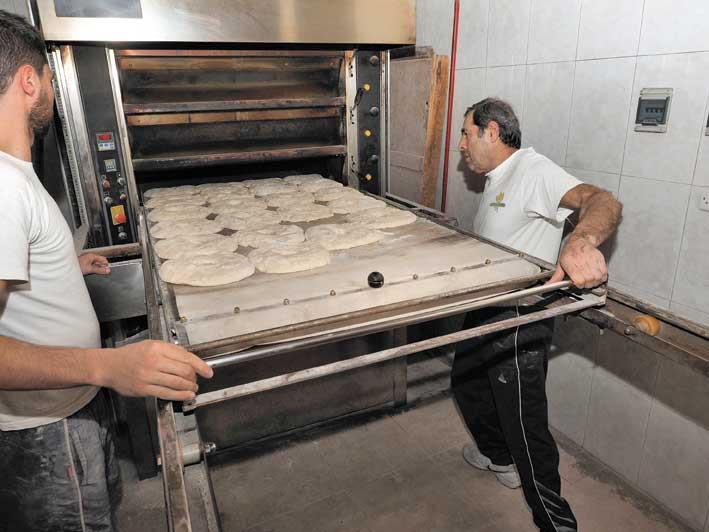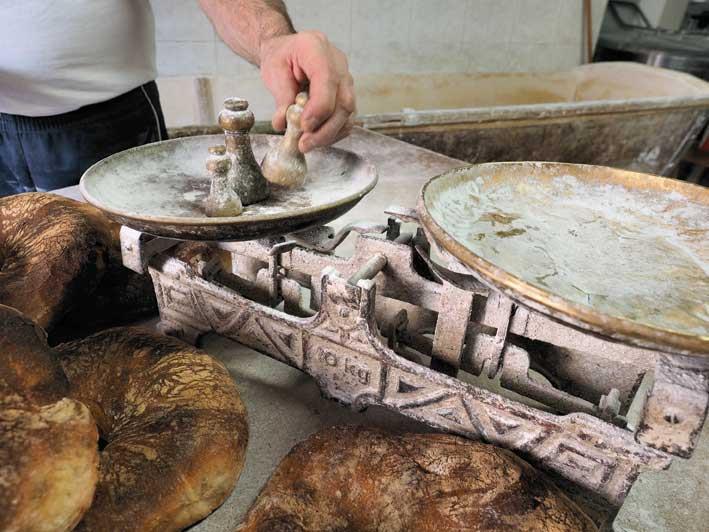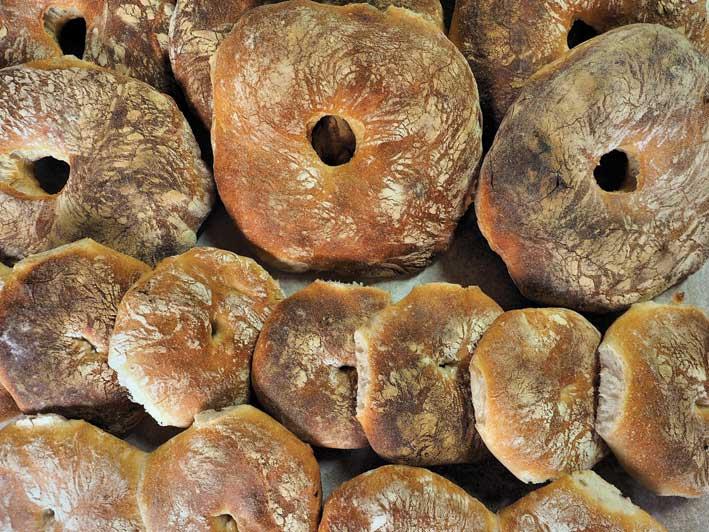It is a recipe going back 30,000 years, a staple food ubiquitous to tables everywhere. Bread has become such an integral part of western culture that is has permeated our religions, folklore and - quite clearly - our cuisine.
In the same way that one associates baguettes with France the ħobza is synonymous with the Maltese identity. We speak about it with pride and introduce it to foreigners, knowing that it only rarely will it not meet their expectations. It has recently become the subject of conversation and concern: the need to reduce the consumption of salt and carbohydrates in one's diet has resulted in the need to re-think how - and how often - one should eat bread.
This month's article is the story of a loaf, or rather a family behind the making of a loaf. On a beautiful, bright Saturday in Birkirkara, I met four brothers and their father who took the time to explain the ins and outs of their craft as they continued with their busy day.

As I approach Anthony Bakery, I am greeted by the uniquely recognisable smell of bread being baked - a smell ingrained in memory and almost universally liked. It has an inviting warmth to it that draws and demands your attention, and needless to say I relished being surrounded by this fragrance.
Despite the bright sunshine outside, it is still a rather chilly February morning but this changes as I step into the bakery and the temperature quickly rises to a more comfortable one. In front of me, side-by-side, lie two giant white ovens and I am aware of the roaring fire emanating from one of them. To my left is a wooden structure resembling a large manger and, next to it, an old weighing scale with bronze weights resembling the pawns in a giant chess set.

I am first introduced to Charles, the father, who is coming to the end of his night shift. He waves me in with flour-covered hands and wastes no time in telling me the history of his bakery. Built originally by his father in 1967 on the same site, it originally had a brick, wood-burning oven which has now been replaced by diesel-electric ones. This year they are celebrating the bakery's 50th anniversary, and Charles remembers their first bake - and the tradition according to which the first batch of loaves from a new oven is given to charity.
Although the recipe remains the same, things have - of course - changed over those 50 years and the bakery is now capable of producing 400 loaves of bread simultaneously, as well as the possibility of making around a thousand ftajjar daily. When I ask Charles if he misses the old oven, he replies: "Not really. The most important thing in a bake is not the oven but rather how well one follows the recipe."
The process seems simple enough: water, preferably at 30°C - which means warm water in winter and adding some ice cubes in summer. Add the right amount of flour, salt and yeast and let it settle and rise. The bakery is, in fact, full of stacked trays with dough covered in blankets. I inquire why they're covered over and am told it is to keep in the warmth released through fermentation. The heat from the rising dough accelerates the process.
There is one interesting part of the process that really caught my attention: after the dough has been prepared every day, a small piece is cut off and kept aside to be mixed in with the batch for the following day. The family has been doing this every day since the bakery first opened which means that, for 50 years, the yeast that their grandfather used, the living bacteria from three generations ago, is still being cultivated and used today.

When I ask Charles what it is like to work with his four sons, he smiles and tells me that it's great. I talk to Matthew, the youngest at 26, who has always loved baking. In fact, he tells me that when he was at secondary school he used to pay to catch a separate bus later just so that he could stay a little longer, helping his father with the baking. The job is not as demanding as people often make it out to be, although there are some particularities. The majority of the work is nocturnal, so most bakers are night-owls, doing all the necessary preparation during the night. They generally work in shifts, alternating between day and night.
It's when they are toiling away in the silence while the rest of the country sleeps around them that the brothers bond the most. Adolf - who is 37, Christian - 33, 29-year-old Jean Paul and, of course, Matthew, combine to make one of those special cases where all four siblings want to keep the family business alive. While I talk to Matthew, a tray of ftajjar they had put into the oven is ready. With a temperature just shy of 300°C, the oven takes about 20 minutes to bake the ftajjar to perfection, whereas a ħobza, however, takes about an hour. Matthew pulls out the tray and it crackles and steams - the sight and sound and smell quite mesmerising. He sees me looking at the tray and offers me one. I accept.
When I ask him if there's still a demand for Maltese bread I'm told that there definitely is, but it has reduced slightly over the years. The fact that people are becoming more nutritionally aware has made a difference: when it comes to the amount of salt in a loaf, the bakery generally uses a kilo of salt for every 150 kilos of flour. And finally, considering that families are becoming smaller so one loaf can feed a family, people are now buying less bread. But right now, however, business for the Sammut family is booming - especially as they supply the bread for a whole chain of supermarkets. With my soft, warm bread in my hand, I leave these baking siblings and step out back outside into the sunlight.